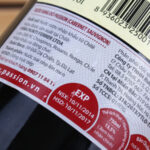Are you expecting a gift from a relative abroad and unsure how to receive it? Or perhaps you want to guide your family in Vietnam on how to receive gifts you send from another country? Read on to discover the procedures for receiving gifts from overseas.
1. Are there any taxes on gifts from abroad?
The answer is yes, and you will need to pay the following fees:
Import Tax
According to Clause 2, Article 16 of the 2016 Law on Export and Import Tax on tax exemption:
“2. Moving property, gifts, and presents within the prescribed limits of foreign organizations or individuals to Vietnamese organizations or individuals or vice versa.
Moving property, gifts, and presents that exceed the tax-exempt limit shall be subject to tax on the excess, except where the receiving unit is an agency or organization whose operating expenses are ensured by the state budget and is permitted by a competent authority to receive, or where the purpose is humanitarian or charitable.”
 Legal regulations on import tax
Legal regulations on import tax
At the same time, based on Decree 134/2016/ND-CP guiding the Law on Export and Import Tax, the following regulations are provided regarding tax exemption for gifts:
“Article 8. Tax exemption for gifts and presents
1. Gifts and presents eligible for tax exemption as stipulated in Clause 2, Article 16 of the Law on Export and Import Tax are those that do not fall under the List of prohibited imported and exported goods, temporarily suspended imported and exported goods, and are not subject to special consumption tax (except for gifts and presents subject to special consumption tax for security and defense purposes) as prescribed by law.
2. Tax exemption limit:
a) Gifts and presents from foreign organizations or individuals to Vietnamese organizations or individuals; gifts and presents from Vietnamese organizations or individuals to foreign organizations or individuals with a customs value not exceeding VND 2,000,000 or with a customs value of more than VND 2,000,000 but the total amount of tax payable is less than VND 200,000 shall be exempt from tax, applicable for no more than 04 times/year.
b) Gifts and presents from foreign organizations or individuals to Vietnamese agencies or organizations whose operating expenses are ensured by the state budget as prescribed by law; gifts and presents for humanitarian or charitable purposes with a customs value not exceeding VND 30,000,000 shall be exempt from tax, applicable for no more than 04 times/year.
In case the exemption limit for agencies or organizations whose operating expenses are ensured by the state budget is exceeded, the Ministry of Finance shall decide on tax exemption for each case.
c) Gifts and presents from foreign organizations or individuals to Vietnamese individuals, which are medicines or medical equipment for patients with diseases listed in Appendix IV of this Decree, with a customs value not exceeding VND 10,000,000, shall be exempt from tax, applicable for no more than 04 times/year.”
 Legal regulations on import tax exemption
Legal regulations on import tax exemption
Thus, gifts and presents will be exempt from import tax if they are not on the List of prohibited imported and exported goods, temporarily suspended imported and exported goods, and are not subject to special consumption tax as prescribed by law.
Goods with a customs value of no more than VND 2,000,000 or a customs value of more than VND 2,000,000 but with a total tax amount of less than VND 200,000 shall be exempt from import tax.
Gifts exceeding the limit prescribed in Clause 2, Article 8 of Decree 134/2016/ND-CP shall be subject to tax on the excess, or if the goods are subject to special consumption tax, the recipient shall pay the export tax for such goods.
Value-Added Tax (VAT)
Based on Decision No. 31/2015/QD-TTg stipulating the norms of luggage, property transfer, gifts, presents, and samples eligible for tax exemption, tax consideration, and non-taxation, Article 5 of this Decision stipulates the following:
 Value-Added Tax (VAT) for exported goods
Value-Added Tax (VAT) for exported goods
“Article 5. Norms for tax-exempt gifts and presents
1. Tax-exempt gifts and presents prescribed in this Article are those that do not fall under the List of prohibited imported and exported goods, temporarily suspended imported and exported goods, and are not subject to special consumption tax (except for gifts and presents for security and defense purposes) as prescribed by law.
2. Gifts and presents from foreign organizations or individuals to Vietnamese individuals; gifts and presents from Vietnamese organizations or individuals to individuals abroad with a value not exceeding VND 2,000,000 (two million) or with a goods value exceeding VND 2,000,000 (two million) but the total amount of tax payable is less than VND 200,000 (two hundred thousand) shall be exempt from import and export tax and not subject to VAT.
3. Gifts and presents from foreign organizations or individuals to Vietnamese organizations; gifts and presents from Vietnamese organizations or individuals to foreign organizations with a value not exceeding VND 30,000,000 (thirty million) shall be considered for import and export tax exemption and not subject to VAT. Gifts and presents exceeding the limit of VND 30,000,000 (thirty million) prescribed in this Clause shall be considered for import tax exemption, not subject to special consumption tax, and VAT on the entire value of the lot in the following cases:
a) Units receiving gifts and presents are state administrative agencies, non-business units, socio-political organizations, socio-professional organizations, if permitted by competent state agencies to receive for use;
b) Goods that are gifts and presents for humanitarian or charitable purposes.”
4. In case the gifts and presents prescribed in Clause 2, Clause 3 of this Article fall under the List of goods subject to special consumption tax for security and defense purposes, they shall be exempt from import and export tax, not subject to special consumption tax, and VAT.
5. In case the gifts and presents are emergency medicines or medical equipment for seriously ill or disaster-affected people with a value of no more than VND 10,000,000 (ten million), they shall be exempt from all taxes.
6. The norms for tax-exempt gifts and presents prescribed in Clauses 3, 4, and 5 of this Article shall not apply to cases where organizations or individuals regularly receive one or some specific types of goods.”
Thus, gifts from abroad are not subject to VAT if they are not subject to special consumption tax, prohibited imported goods, etc., and fall within the norms of goods eligible for tax exemption as stipulated in Article 5.
If the goods are subject to special consumption tax or have a value greater than the prescribed norms, the recipient must pay VAT for these goods.
2. Procedures for receiving gifts from abroad
Commodity Policy
The following are the types of goods that can be received as gifts:
According to Clause 3, Item II, Appendix 1 of Decree No. 12/2006/ND-CP dated January 23, 2006, of the Government: “Regulations on the implementation of the Commercial Law on international goods purchase and sale activities and agency activities for the purchase, sale, processing, and transit of goods with foreign countries: Used consumer goods, including the following groups of goods, are prohibited from importation: Textiles, garments, footwear; Electronics; Refrigeration equipment; Household electrical appliances; Medical equipment; Interior decoration items; Ceramics, porcelain, glass, metal, plastic, rubber, and other household goods; Used information technology products.”
Thus, you are allowed to receive goods as gifts if they do not belong to the groups of prohibited imported goods mentioned above.
 Procedures for receiving gifts from abroad
Procedures for receiving gifts from abroad
Goods sent via postal service
Customs Declaration:
According to Clause 4, Article 4 of Circular No. 99/2010/TT-BTC dated July 9, 2010, stipulating the “customs procedures for postal items, parcels, exported and imported goods sent via postal services: Enterprises (Vietnam Post Corporation) shall, on behalf of the consignor, directly perform customs procedures for exported and imported goods (excluding letters and diplomatic and consular bags), assume responsibility for implementing policies on the management of exported and imported goods, tax and fee policies, and other collection policies as prescribed by law, and fully perform the following rights and obligations of the consignor:
- Customs declaration
- Presentation of goods for customs inspection
- Payment of taxes, fees, and other charges (if any)
- Receipt of exported goods for export abroad and imported goods for delivery to the consignor.”
Also, according to Article 4 of this Circular, if the consignor requests to perform customs procedures directly, the consignor shall make the customs declaration directly on the customs declaration form. If the consignor wants a separate declaration for the goods, a separate customs declaration shall be made.
Thus, the Vietnam Post Corporation will act on behalf of the recipient in performing the procedures and fulfilling tax obligations (if any) for imported goods, except when the recipient requests to perform these tasks directly.
 Party acting on behalf of the recipient in performing procedures and fulfilling tax obligations
Party acting on behalf of the recipient in performing procedures and fulfilling tax obligations
Customs Procedures:
In accordance with the provisions of Clauses 3 and 4, Article 4 of Circular 99/2010/TT-BTC mentioned above, enterprises (Vietnam Post Corporation) must be responsible for managing goods and organizing the delivery of imported goods to the consignor after approval by the Customs Branch.
Goods sent via express delivery service
According to Article 3 of Circular No. 100/2010/TT-BTC dated July 9, 2010, of the Ministry of Finance, stipulating the “customs procedures for exported and imported goods sent via international air express delivery service: Exported and imported goods sent via international air express delivery service shall undergo customs procedures at the headquarters of the Customs Branch at the border gate, or the headquarters of the Customs Branch outside the border gate”.
According to Clause 1.3.2, Item 1.1, Clause 1, Article 6 of Circular No. 100/2010/TT-BTC: “Enterprises providing express delivery services shall, on behalf of the consignor, directly perform customs procedures for exported and imported goods (excluding letters and diplomatic and consular bags), assume responsibility for implementing policies on the management of exported and imported goods, tax and fee policies, and other collection policies, and the rights and obligations of the consignor as prescribed by law”.
The above are some notes on the procedures for receiving gifts from abroad, including the methods of receipt and tax norms, for your reference. Please keep this information handy and read it carefully to receive your gifts quickly and avoid any loss.
“A Comprehensive Guide to Importing Goods from China to Vietnam”
Introducing the ultimate guide to navigating the complex world of importing goods from China to Vietnam. Unravel the mysteries of cross-border trade with our comprehensive step-by-step process, empowering you to expand your business horizons with ease and efficiency. Discover the secrets to seamless importing, ensuring your venture is a resounding success.
Customs Clearance Procedures: A Comprehensive Guide to Importing Goods
Do you know the ins and outs of customs procedures and the fundamental process of importing goods? Well, you’ve come to the right place! Our expert guide delves into the intricacies of customs clearance, offering a comprehensive insight into the world of international trade. Get ready to navigate the complex world of customs with ease!




































